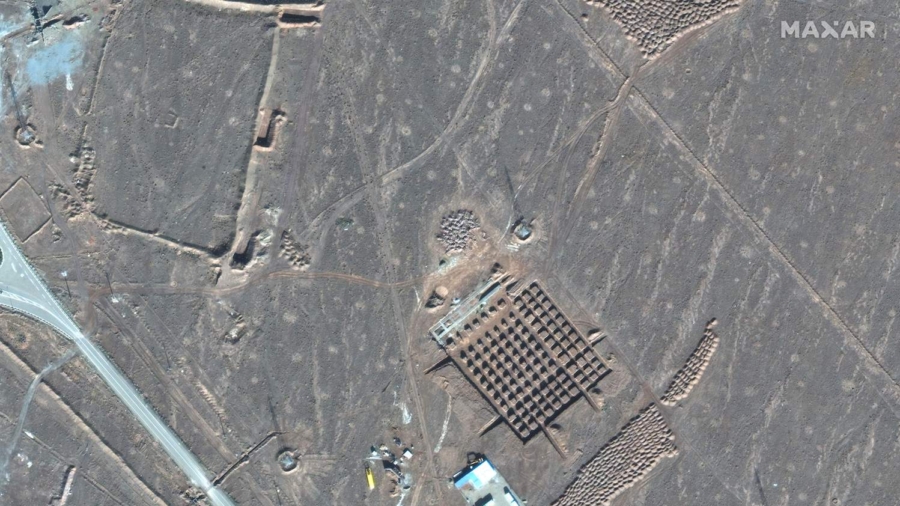DUBAI—Iran has resumed 20 percent uranium enrichment at an underground nuclear facility, the Islamic regime said on Monday, breaching a 2015 nuclear pact with major powers.
Benjamin Netanyahu, prime minister of Iran’s arch foe Israel, said the move was aimed at developing nuclear weapons and that Israel would never allow Tehran to build them.
The enrichment decision, Iran’s latest contravention of the accord, coincides with increasing tensions between Iran and the United States.
Tehran started openly violating the accord in 2019 after the United States’ withdrawal from the pact in 2018 and the reimposition of U.S. sanctions that had been lifted under the deal.
The agreement’s main stated aim was to extend the time Iran would need to produce enough fissile material for a nuclear bomb, if it chose to, to at least a year from roughly two to three months. It also lifted international sanctions against Tehran.
Trump has said the agreement did little to prevent Iran from developing nuclear weapons and didn’t prevent Iran from involvement in several conflicts in the Middle East.
“A few minutes ago, the process of producing 20 percent enriched uranium has started in Fordow enrichment complex,” government spokesman Ali Rabeie told Iranian state media.
The step was one of many mentioned in a law passed by Iran’s parliament last month in response to the killing of the country’s top nuclear scientist, which Tehran has blamed on Israel.
The head of the International Atomic Energy Agency (IAEA) is set to inform members on Monday about developments in Iran, the IAEA said, after the announcement by Tehran.

“Agency inspectors have been monitoring activities at the Fordow Fuel Enrichment Plant in Iran. Based on their information, Director General Rafael Mariano Grossi is expected to submit a report to IAEA Member States later today,” a spokesman for the nuclear watchdog said by email.
Nuclear Watchdog
In Brussels, a European Union Commission spokesperson said that the “move, if confirmed, would constitute a considerable departure from Iran’s commitments.”

“All participants are interested in keeping deal alive. The deal will be kept alive as long as all participants keep their commitments.“
The EU said it would wait for a briefing by the head of the IAEA to EU member states before commenting further.
On Jan 1, the IAEA said Tehran had told the watchdog it planned to resume enrichment up to 20 percent at Fordow site, which is buried inside a mountain.
“The process of gas injection to centrifuges has started a few hours ago and the first product of uranium hexafluoride (UF6) gas will be available in a few hours,” Rabeie said.
“The process has started after taking measures like informing the U.N. nuclear watchdog.”
Iran had earlier breached the deal’s 3.67 percent limit on the purity to which it can enrich uranium, but it had only gone up to 4.5 percent so far, well short of the 20 percent level and of the 90 percent that is weapons-grade.
U.S. intelligence agencies and the IAEA believe Iran had a secret, coordinated nuclear weapons program that it halted in 2003. Iran denies ever having had one.
In a statement in Jerusalem, Netanyahu said Iran’s enrichment decision could be explained only as a bid to “continue to carry out its intention to develop a military nuclear programme.”
He added: “Israel will not allow Iran to produce nuclear weapons.”
By Parisa Hafezi
NTD News contributed to this report.

